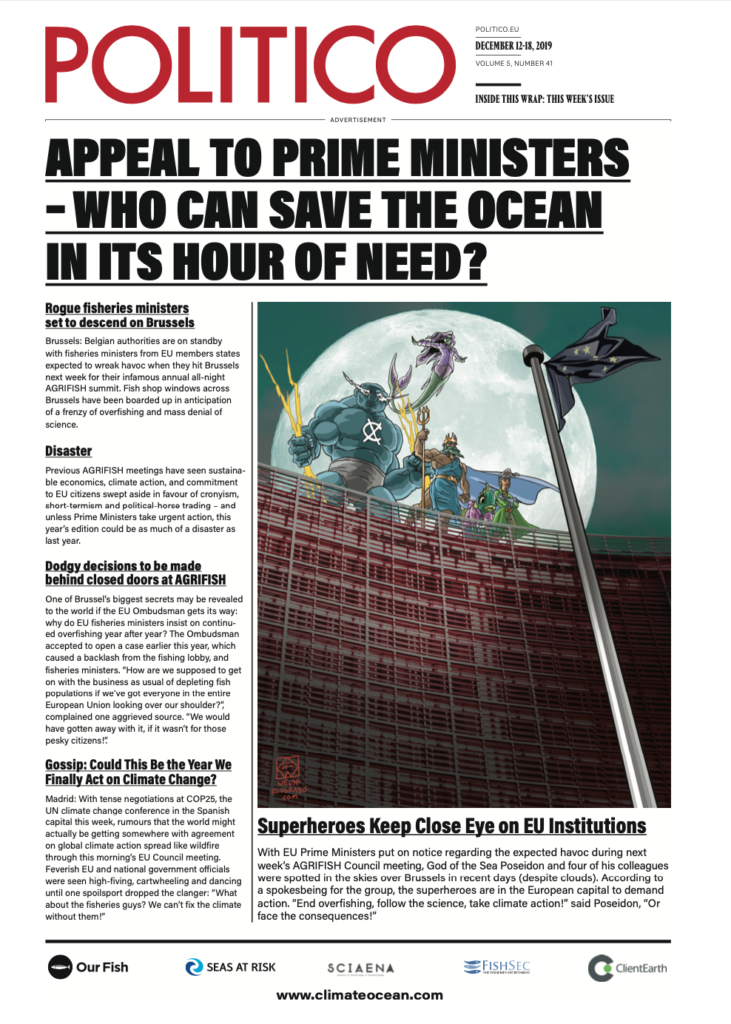
Prime Ministers: On 19 November the General Affairs Council of the EU concluded that climate change is a direct and existential threat to life in oceans and seas globally – and stressed the need for immediate action. Before AGRIFISH opens this Monday, tell your fisheries ministers: Ending overfishing – and thus protecting the ocean – is not just a commitment, not just a trade deal, not even just a law, but a solution that will strengthen the life support system that all European citizens depend on, and help mitigate the worst threats of climate change.
Tell them that it is their job to deliver on this commitment.
Why EU Prime Ministers Must Act to End Overfishing This Week:
- Citizens: In 2013, after decades of overfishing and destructive fishing practices led to empty seas, vanishing jobs and plummeting profits, millions of citizens demanded that EU lawmakers deliver an ambitious reform of the Common Fisheries Policy (CFP). This new CFP would bring back sustainable, thriving ocean ecosystems that could secure the future for the next generation of Europeans. While not perfect, it put in place key objectives, including a legal obligation to end overfishing by 2020 – at the latest. So far, EU fisheries ministers have failed to make substantive progress on implementing the CFP. For example, around 40% of North East Atlantic fish stocks are still overfished.
- Science: To end overfishing – in accordance with EU laws, annual fishing limits must be set in line with scientific advice. The EU receives this advice from the International Council for the Exploration of the Sea (ICES) – yet does not always follow it. It’s as simple as it sounds – following scientific advice would not only rebuild fish populations, it would end the ‘boom and bust’ cycle of current management, which has resulted in certifications being removed for fish like North Sea cod. The EU Council of AGRIFISH Ministers, which has the ultimate say in setting fishing quotas, has exceeded scientific advice in six out of every ten cases since the CFP reform in 2013.
- Ocean health: Our ocean is sick. But fishing quotas – if properly used – can allow fish populations to recover, and help restore ocean health. This is especially crucial when many EU fish populations are at a fraction of historical levels. When quotas follow scientific advice, research shows that increases in abundance follow. But the ocean is a diverse ecosystem, not a farmland with individual crops, so we must manage fish populations with an ‘ecosystem-based approach’. This means that even if one or two commercial fish stocks are very profitable, they should not be exploited to the detriment of other fish populations or the overall ecosystem.
- Economy: EU fisheries ministers have spent six years delaying an end to overfishing – and this comes at a cost. If we had more abundant fish populations, fewer fishing trips would be required – lowering costs – as fish become easier to catch. More abundant fish populations also mean that future harvests would be larger than current catches – increasing revenues – like interest payments on a larger bank account. If North East Atlantic fish populations were rebuilt, they could deliver an estimated €4.64 billion/year rather than just €0.1 billion, and generate an extra 20,000 jobs. Ending overfishing is common sense economics.
- Law: Despite all the benefits of ending overfishing, continued political delay from Fisheries Ministers has made things worse, so some big cuts to fishing quotas are needed this year. While the citizen, science, health and economic cases for ending overfishing, all demonstrate a clear ‘should’, the legal status of the Common Fisheries Policy requires sustainable fishing limits in 2020 as a ‘must’. The Common Fisheries Policy deadline is not an aspirational deadline to be missed and forgotten – it is the law. EU citizens have to follow laws, why not EU Fisheries Ministers?
- Climate: Ending overfishing is climate action. The ocean regulates the climate, absorbs CO2, gives us every second breath, and has absorbed over 90% of excess global heating – we need our ocean to be healthy if we are to contend with climate change. Overfishing is one of the greatest pressures on the ocean; rebuilding fish populations would decrease CO2 pollution, increase carbon capture, restore the marine food web, and create a more resilient ocean ecosystem. But if ending overfishing is a fundamental and achievable emergency climate action, why are EU fisheries ministers undermining the work being carried out by their own governments to mitigate the impacts of the climate crisis?

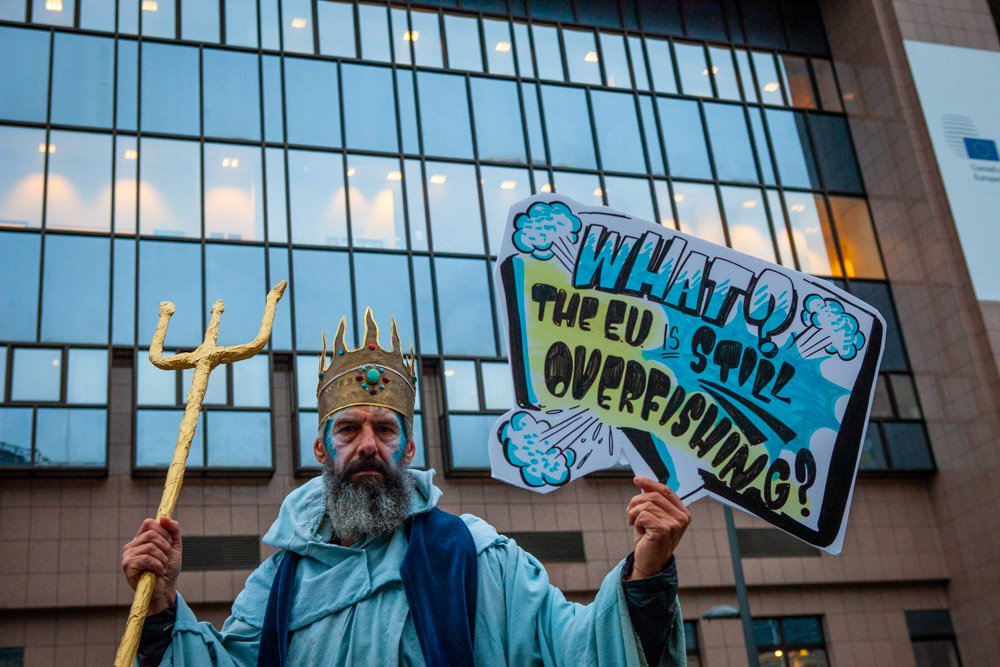
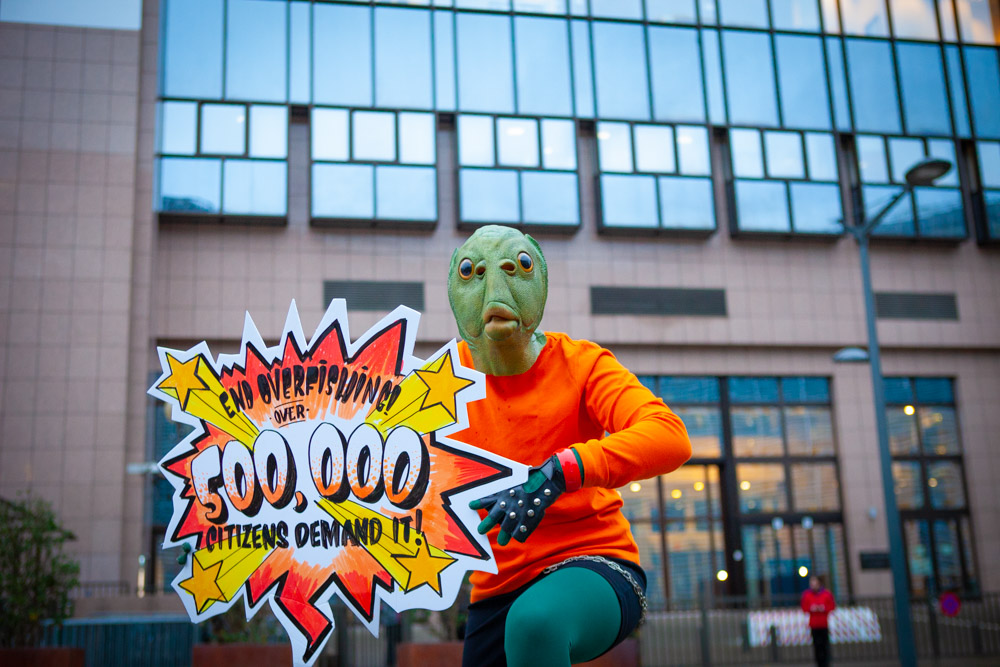
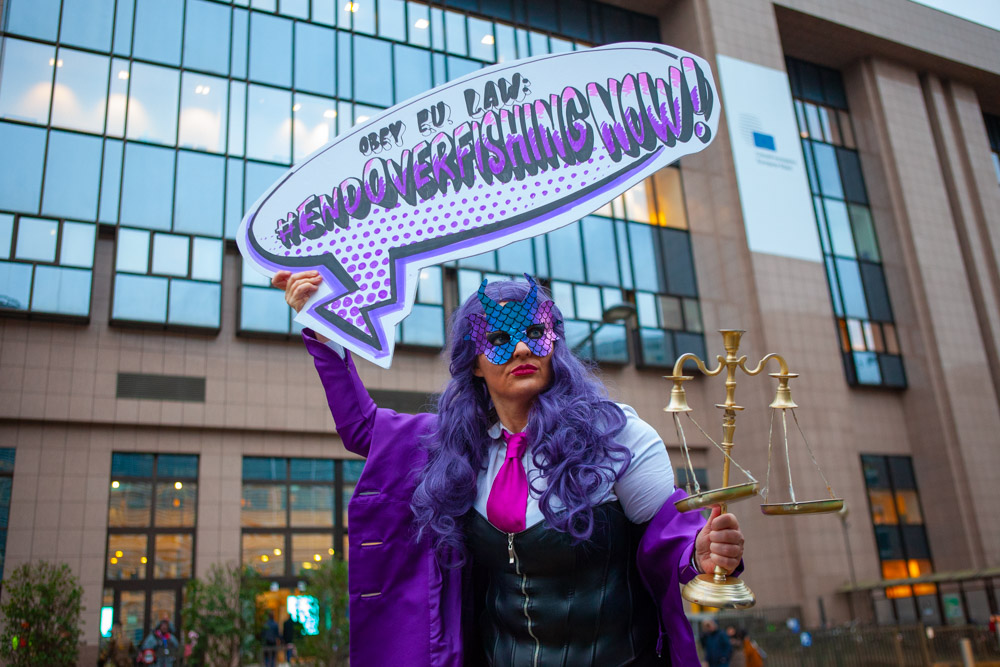
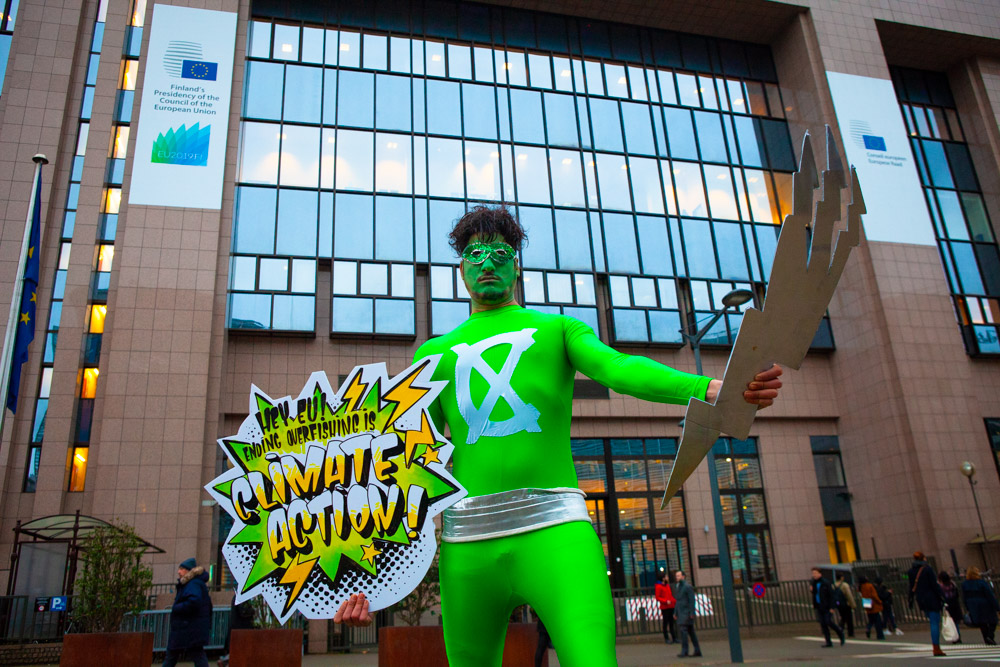
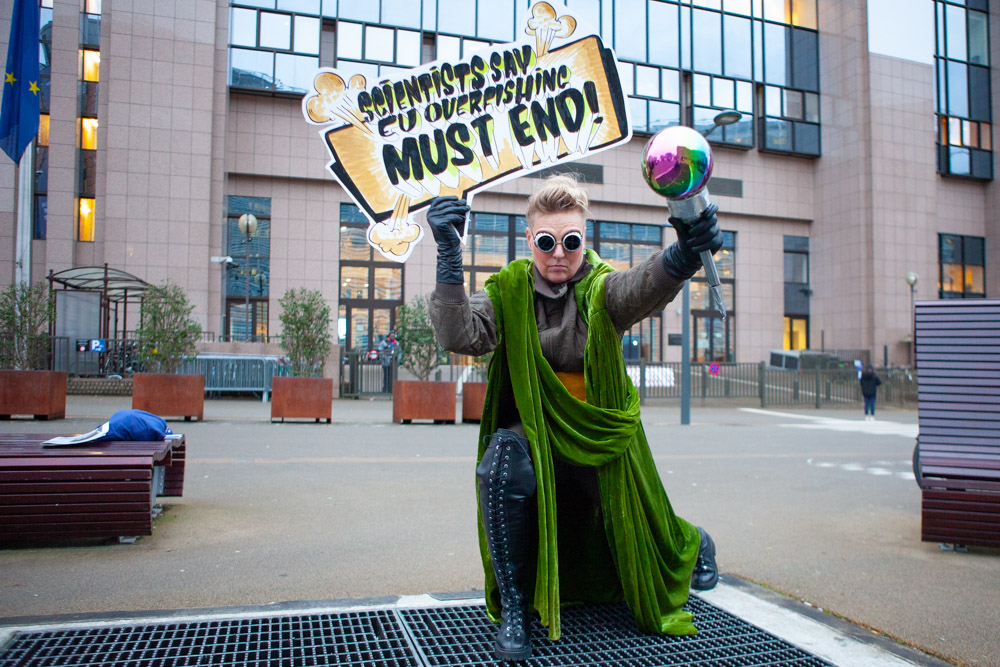






See also:
- Press release: Zero to Superhero: Will EU Fisheries Ministers Finally End Overfishing This Week?
- Press release: Ocean Avengers Deliver Ultimatum to EU Prime Ministers: End Overfishing
- Working Paper: Ending Overfishing Is Opportunity to Combat Climate Crisis – Rahish Sumaila and Travis Tai
- Briefing: Ending Overfishing is Climate Action
- Briefing: Why Ministers must not exceed scientific advice on fishing quota
- Joint NGO recommendations on the setting of Northeast Atlantic fishing opportunities for 2020
- COP25: Call for governments to end overfishing to counter climate crisis
- Fisheries Officials Feel Heat as Flamenco Brings COP25 to EU-Norway Meeting
Missed us in Politico?
For more information or other ways to take action, go to our.fish, or contact [email protected]





